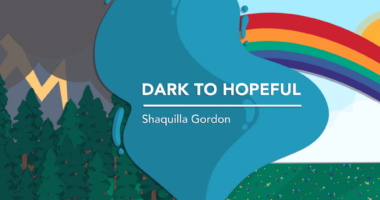Speaking up: The power of self-advocacy with PNH
Self-advocacy is one of the most crucial skills I have to manage the disease

When I was diagnosed with paroxysmal nocturnal hemoglobinuria (PNH) in 2017, I felt powerless. I had no control over what was happening to my body and found myself at the mercy of doctors and medical jargon I barely understood.
At first, too overwhelmed to push for my own needs, I followed every instruction without question. But as time went on, I realized that if I wanted the best possible care, I had to become my own advocate.
I believe that self-advocacy is one of the most crucial skills anyone with a chronic illness can develop. I learned that the hard way, after months of frustration and confusion. Early on, I struggled to get the right treatments, faced dismissive doctors, and had insurance battles that left me feeling defeated.
I remember one appointment where I voiced my concerns about extreme fatigue, only to be told, “That’s just part of the condition.” I left that office feeling unheard, but I also left with a new determination: I had to fight for myself.
The first step in self-advocacy was education. I immersed myself in learning about PNH through reliable sources like the Aplastic Anemia and MDS International Foundation, the PNH Global Alliance, and the National Organization for Rare Disorders. I made sure I understood my lab results, treatment options, and the latest research. Armed with knowledge, I began asking better questions at my medical appointments and challenging decisions that didn’t seem right for me.
The next step was building a support system. I connected with other PNH patients through online communities and advocacy groups such as the PNH Support network. Knowing that others were facing the same struggles I was empowered me to speak up. I also leaned on my family, explaining to them what I needed so that they could help advocate on my behalf when I felt too exhausted to do so myself.
One of the hardest, but most important, lessons I learned was how to say no: no to dismissive doctors; no to treatment plans that didn’t align with my needs; no to pushing myself beyond my limits just to meet the expectations of others. I found a medical team that truly listened and worked with me, not just on me.
If you’re living with PNH, remember that your voice matters. Your experiences matter. Never hesitate to ask questions, challenge decisions, and push for the care you deserve. Being your own advocate isn’t easy, but it’s one of the most empowering things you can do for yourself.
Note: PNH News is strictly a news and information website about the disease. It does not provide medical advice, diagnosis, or treatment. This content is not intended to be a substitute for professional medical advice, diagnosis, or treatment. Always seek the advice of your physician or other qualified health provider with any questions you may have regarding a medical condition. Never disregard professional medical advice or delay in seeking it because of something you have read on this website. The opinions expressed in this column are not those of PNH News or its parent company, Bionews, and are intended to spark discussion about issues pertaining to paroxysmal nocturnal hemoglobinuria.








Andrew Nowak
I understand fully, for my PNH I was started on Fabhalta Lin June of 2024 my concerns is how I feel very tired after 1 hour of taking Fabhalta and my physician does not seem concerned I have a appointment next month and I am encouraged I should ask if there is a better treatment.
I thank you for your thoughts and words of encouragement.
Andrew Nowak